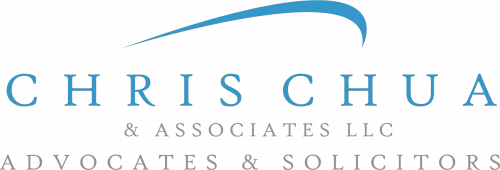Trust vs Family Office - Your Ultimate Guide
Managing wealth can be a complex and challenging task.
As your assets grow, you may need more specialized assistance to help you navigate the intricate world of wealth management.
Trust and family offices are two popular options that provide tailored solutions to high-net-worth individuals and families.
Trust vs Family Office – how do you decide which one is the right choice for you?
In this article, we will explore the key differences between trusts and family offices, their benefits and drawbacks, and guide you in making an informed decision. This comprehensive guide will help you understand the nuances of wealth management and determine the best approach to safeguard and maximize your financial legacy.
Table of Contents

1. Trusts
- A trust is a legal arrangement where a trustee holds and manages assets on behalf of beneficiaries.
- This powerful tool allows individuals to preserve and protect their wealth while ensuring it is distributed according to their wishes.
- Trusts offer several advantages in wealth management.
- A trust provides asset protection by placing assets under the control of a trustee, shielding them from potential creditors or legal disputes.
- Trusts can help minimize estate taxes, as assets held in a trust may be exempt from certain taxes upon transfer to beneficiaries. This allows individuals to pass on their wealth to future generations tax-efficiently.
- Unlike probate proceedings, the trust offers privacy, as they are generally not subject to public records.
- Trusts can be structured to provide ongoing financial support for beneficiaries, ensuring that their needs are met long-term while preserving the integrity of the assets.
- However, there are also some drawbacks to consider.
- Establishing and maintaining a trust can be complex and require ongoing administration and legal fees.
- Sometimes, a trustee may have significant control over the trust assets, which can lead to conflicts of interest or mismanagement.
- Trusts may limit the flexibility of beneficiaries, as they have less control over the assets compared to direct ownership.
2. Family Offices
- A family office is a private wealth management advisory firm specifically created to cater to a wealthy family’s financial needs and goals. It serves as a full-service solution for managing the financial affairs of high-net-worth individuals and their families.
- Unlike a trust, which is a legal entity designed to hold and manage assets for the benefit of beneficiaries, a family office is an organization that provides a wide range of services to meet the unique needs of wealthy families.
- The primary function of a family office is to provide comprehensive and personalized financial services, including investment management, tax planning, estate planning, philanthropy, and even concierge services.
- A dedicated team of professionals, such as financial advisors, accountants, lawyers, and investment managers, are typically employed by the family office to handle these various aspects of wealth management.
- Family offices offer several advantages in wealth management.
- A family office offers a high level of customization and flexibility. Unlike a trust, which operates according to predetermined rules and regulations, a family office can tailor its services to the specific needs and preferences of the family it serves.
- A family office provides a centralized and streamlined approach to wealth management. By consolidating various financial functions under one roof, it allows for better coordination and integration of strategies, resulting in more efficient decision-making and a cohesive wealth management plan.
- A family office offers high privacy and confidentiality, as it operates as a private entity, shielded from public scrutiny.
- However, it is essential to note that family offices also have their drawbacks.
- One of the main challenges is the cost. Establishing and maintaining a family office can be expensive, as it requires a team of professionals with specialized knowledge and expertise. This can make it less accessible for families with lower levels of wealth.
- Another potential drawback is the lack of objectivity. Since the family office team works exclusively for one family, there may be a risk of bias or conflicts of interest. This can impact the objectivity of investment decisions and potentially limit the range of investment opportunities presented to the family.
3. Factors To Consider When Choosing Between A Trust & A Family Office
When managing wealth, choosing between a trust and a family office can be a significant decision.
Both options offer unique features and benefits, but it’s essential to consider several factors before making a choice.
– Complexity of Assets
- One crucial factor to consider is the complexity of your assets.
- A family office may be the most suitable option if you have a diverse investment portfolio or own multiple businesses.
- Family offices provide comprehensive services, including investment management, tax planning, and estate planning, all under one roof, making them well-equipped to handle complex asset structures.
– Privacy and Control
- If maintaining confidentiality is a top priority, trust could be preferred.
- Trusts offer a higher level of privacy as they allow assets to be held in the name of the trust rather than directly in your name.
- Additionally, trusts provide more control over how your assets are managed and distributed, allowing you to set specific guidelines and directives.
– Cost and Resources
- Family offices tend to be more expensive due to their extensive range of services and the required dedicated staff.
- On the other hand, trusts may have lower operational costs but could involve professional fees for trustees.
- Consider your budget and the resources you will allocate for wealth management.
– Expertise and Professionalism
- Family offices typically have a team of professionals, including investment managers, financial planners, and legal advisors, providing expertise across various financial disciplines.
- Depending on their structure, trusts may involve professional trustees with extensive experience in financial management and administration.
– Long-Term Objectives and Succession Planning
- It’s crucial to align your choice with your long-term objectives and succession planning.
- Family offices often excel in multi-generational wealth preservation and can guide family governance and intergenerational wealth transfer.
- Trusts also offer succession planning benefits, allowing you to specify how your assets will be distributed and managed after your lifetime.
4. Making The Right Choice
When it comes to managing your wealth, making the right choice trust vs family office can significantly impact your financial future.
Both options offer unique benefits and services tailored to the needs of high-net-worth individuals.
As you consider which path to take, you must carefully evaluate your goals, preferences, and the level of control you desire over your assets.
- Trusts provide a reliable and well-established framework for wealth management.
- They offer professional oversight and asset protection and enable efficient estate planning.
- Trusts are ideal for those seeking a hands-off approach, allowing experienced trustees to handle investment decisions and distributions on your behalf.
- However, remember that trusts can come with administrative fees and limited flexibility, making choosing the right trustee who aligns with your values and financial objectives essential.
- Family offices offer a more personalized and comprehensive approach to wealth management.
- With a family office, you have the advantage of dedicated professionals who understand your unique circumstances and can provide custom-tailored services.
- This hands-on approach allows for greater control and flexibility in decision-making and the potential for direct involvement in investment strategies.
- However, establishing and maintaining a family office can be cost-intensive and require a significant time commitment.
Managing wealth is a lifelong journey, and as your circumstances evolve, it may be necessary to re-evaluate your choice and adjust accordingly.
Regularly reviewing and reassessing your wealth management strategy will ensure that you continue to make informed decisions that align with your evolving financial goals.
Whether you opt for a trust or a family office, both choices offer valuable resources to help you navigate the complexities of wealth management.
By carefully considering your unique circumstances and seeking professional guidance, you can make an informed decision that sets you on the path toward financial success and peace of mind.




